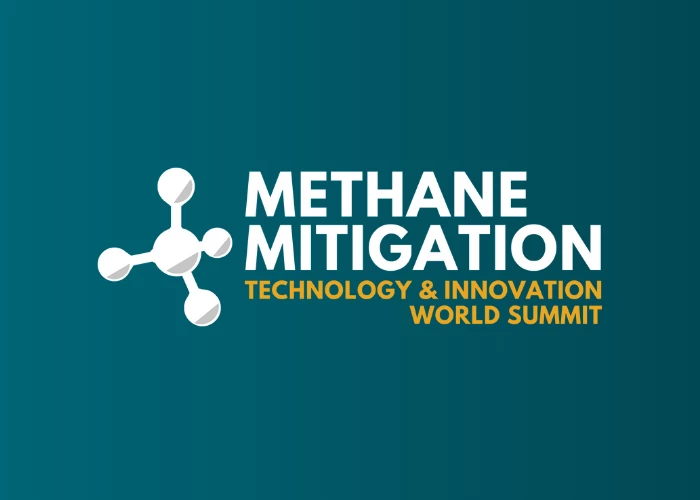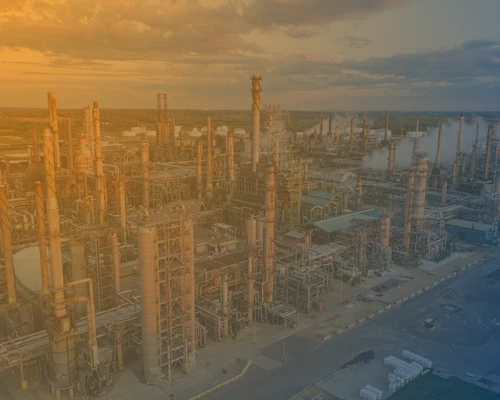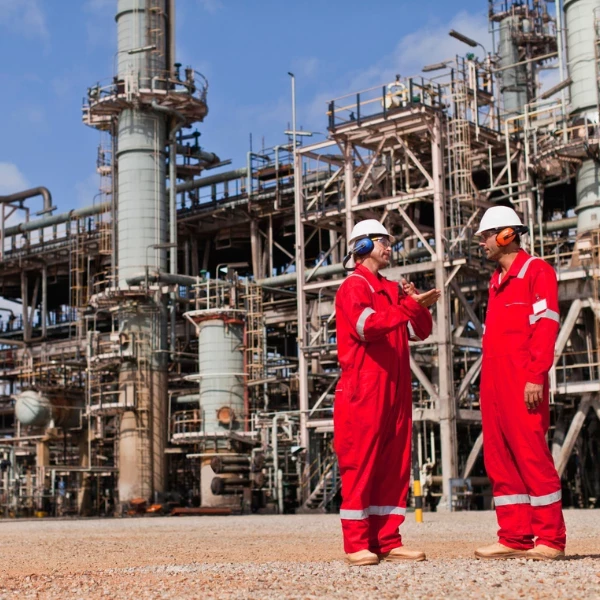Goodbye Dull and Dirty – Changing the Perception of Oil and Gas Work, Jobs, and Careers
Add bookmark
At the March Connected Worker Conference in Houston, I presented a new job design model for the oil and gas sector aimed at attracting career-focused talent. The model aims to move past the Victorian-era perception of industrial work as dull, dirty, dangerous, and demanding.
Industrial History Shaped Today’s Perception
The history of industrialization in the 19th and 20th centuries was marked by the emergence of a new artistic movement called "social realism" or "industrial realism."
The movement focused on exposing the harsh realities of industrial labor and the negative impact of industrialization on society. The movement's themes included worker dehumanization, labor exploitation, the superiority of automation, and negative environmental and social consequences of industrialization.
One of the most captivating forms of Industrial Realism was industrial fables. These stories brought to life characters that embodied the strength, resilience, and ingenuity of industrial workers. These tales reinforced the idea that industrial work was strenuous, monotonous, dangerous, and demanding.
The impact of these stories was significant and shaped the universal perception of the industry that still exists today. For instance, John Henry, a steel driver in railroad construction, competed with a steam-powered drill to determine who could finish a tunnel faster. Paul Bunyan, with his colossal size and legendary feats, embodied the physical and mental endurance required to work long hours in the lumber industry. Joe Magarac, the steelworker from the Pittsburgh steel mills, represented the strength, endurance, and perseverance of men who worked long hours (known as the “long turn”) in the steel mills. Casey Jones represented the heroic efforts of railroad workers who risked and lost their lives because they refused to abandon their posts to ensure the safety of passengers from an inevitable collision.
These characters worked under harsh and dangerous conditions for long hours without rest or breaks. They had little autonomy or control over their work and were at the mercy of their oppressive bosses and the machines they competed with. Workers were reduced to dehumanized cogs in an industrialized machine subordinate to automation. The impact of these stories, as well as other forms such as songs, books, and art, has resulted in the stigmatization of industrial work, which still lingers.
The Perception Problem – Why Oil and Gas is not Viewed as Cool
Understanding the oil and gas career perception problem is a significant issue. It’s so pervasive that many believe that the way Americans think about industrial jobs is a greater threat to the sector than automation.
The manufacturing skills gap in the U.S., for instance, could result in 2.1 million unfilled jobs by 2030, according to a 2021 study by Deloitte and the Manufacturing Institute.
These statistics make it clear that the industrial sector in the US is facing a growing perception problem. This threatens its ability to attract a sustainable talent supply and compete with global markets. Coupled with the fact that in the coming years, Gen Z, who lack interest in this type of work, will constitute the most significant portion of active workers in the market. All this when the industry is losing workers to retirement every day.
The Risk of Failing to Address the Perception Problem
The challenge is to shift perception to make industrial work, jobs, and careers more appealing by emphasizing the role of advanced technology in industry as part of the human value proposition. The industry needs to show that the future of oil and gas is exciting, high-tech, and full of potential and stability.
According to a 2020 PWC survey, oil and gas topped the list of industries in which millennials would avoid working due to negative perceptions. It is no secret that the younger generation has a different mindset regarding their career. In fact, studies show that 60% of the younger generations have an interest in running their own businesses. Raised on a culture of "Shark Tank" and Instagram or Tic Tok influencers, they aspire to create their own products and be their own bosses, rather than pursuing traditional careers in industry.
The perception has been amplified as Industry 4.0 ’s efforts targeted saving at least 75% of labor costs, enable 24-hour continuous production, and automate dull, dirty, dangerous, and physically demanding work. However, the focus on automation and cost reduction has scared off the current talent pool as they fear unstable jobs and dead-end career paths. The feeling for many is that you can get a job in the industrial sector, but not a sustainable career.
The new perception must reinforce that robotics and automation will be used to drive advanced manufacturing capabilities and the concept of the factory of the future in terms of efficiency, productivity, safety, and competitiveness with global markets that leverage low wages. AI and other technologies should be better promoted as a means to position humans as the key to achieving value creation and global competitiveness through human cognition, creativity, and collaboration.
Targeting Gen Z and Gen Alphas with a Cool Manufacturing Job Design Model (4M-Manufacturing)
According to the L2L 2019 Manufacturing Index one-third (32%) of Generation Z has had manufacturing suggested to them as a career option, as compared to only 18% of Millennials.
Meaningful Work and Personal Fulfillment - Shift from Dull to Meaningful Work
The pursuit of meaningful work has become increasingly important in today's workforce, where employees seek more than just a paycheck. While dull work can lead to disengagement and boredom, meaningful work provides a sense of purpose and fulfillment that motivates and engages employees.
Research has shown that employees who find their work meaningful are more likely to stay with their current employers and experience higher levels of job satisfaction. They are also more committed to their jobs and tend to be more productive, thus contributing to the long-term success of the organization. Additionally, employees who feel that their work aligns with their values report better physical and mental health.
Finding meaningful work has become a crucial aspect of achieving personal fulfillment. This allows individuals to pursue their passions, align their work with their values, and contribute to causes they believe in.
Mindful Work and Improved Focus - Shift from Dirty to Mindful Work
Mindful work emphasizes the three C’s of the new industrial skills economy - cognitive, creative, and collaborative abilities. It seeks to shift form work that wears down hands to work that builds up minds.
Engaging workers in working with advanced technologies and data will drive continuous learning and growth, leading to improved productivity and reduced stress, burnout, and a sense of career sustainability. The three C's of work are highly valued in the new industrial economy, where critical thinking, problem-solving, creativity, and collaboration are essential for driving the oil and gas sector to the next level of success beyond productivity.
While dirty work requires physical labor and exposure to unpleasant material and conditions, that you want to get in and out of quickly, mindful work is work that you want to stay in to achieve a state of flow. Mindful work requires a new work anatomy in which companies create environments in which employees achieve a state of flow in which they experience deep engagement, concentration, and complete absorption in a task for longer periods of time. This is in contrast to today’s environments that present a world in which distractions and interruptions continually reduce concentration and productivity.
Flow is the new work currency, as it enhances the three C's by improving attention, memory, and decision-making, while reducing the negative effects of stress on cognitive functioning and job satisfaction.
Motivational Work and Job Satisfaction - Shift from Demanding to Motivating Work
Demanding refers to jobs requiring high levels of physical exertion or complex multitasking. These jobs can be stressful and emotionally taxing, leading to burnout and fatigue. In contrast, motivating work encourages employees to feel inspired and engaged, thereby promoting their overall well-being and job satisfaction.
Research has shown that motivating work energizes and motivates employees to do their best, as employee motivation is directly linked to job satisfaction, engagement, and productivity. Highly motivated employees can be 4X more productive than their less motivated counterparts.
Gone is the day when demanding work is seen as the hallmark of a productive employee. Instead, motivating work has become a new norm as it promotes flow and increases well-being and job satisfaction. Another key characteristic of motivating work is that it involves creating a supportive and collaborative work environment, providing opportunities for growth and development. Motivating work is considered essential for employee attraction, retention, well-being, job satisfaction, challenge, and growth.
Moral Work and Social Responsibility - Shift from Dangerous to Moral Work
Dangerous work, characterized by physical risks and potential harm, has long been a concern. This includes activities such as working at heights, confined spaces, or operating hazardous chemicals or machinery. However, a new type of work is on the rise: moral work. Where dangerous work has the power to harm, moral work has the power to help, as it prioritizes ethics and values, ensuring that the work is done in a way that is responsible, sustainable, reduces waste, and is beneficial to society.
Dangerous work should be eliminated with the emphasis on leveraging robotics and automation to help keep people out of harm. The automation of 4D work will also allow workers to shift their focus to more socially responsible activities and moral work. As the younger generations increasingly prioritize social responsibility, moral or socially responsible work is becoming increasingly important for employees in terms of attraction, engagement, and job satisfaction.
Organizations that prioritize moral work and ways of working build trust and loyalty with their employees and create a positive reputation in the marketplace. Research even indicates that moral work can lead to positive organizational citizenship behaviors such as helping colleagues and going above and beyond job duties.
Conclusion
The new 4M-manufacturing characteristics of job model design represent a radical shift to destigmatizing perceptions of industrial work. This shift is needed to rejuvenate the oil and gas sector, as it faces serious labor issues stemming from perception. By adopting this model, organizations can create a more engaged, motivated, and fulfilling workforce, leading to increased employee attraction, retention, productivity, innovation, and marketplace sustainability.





























